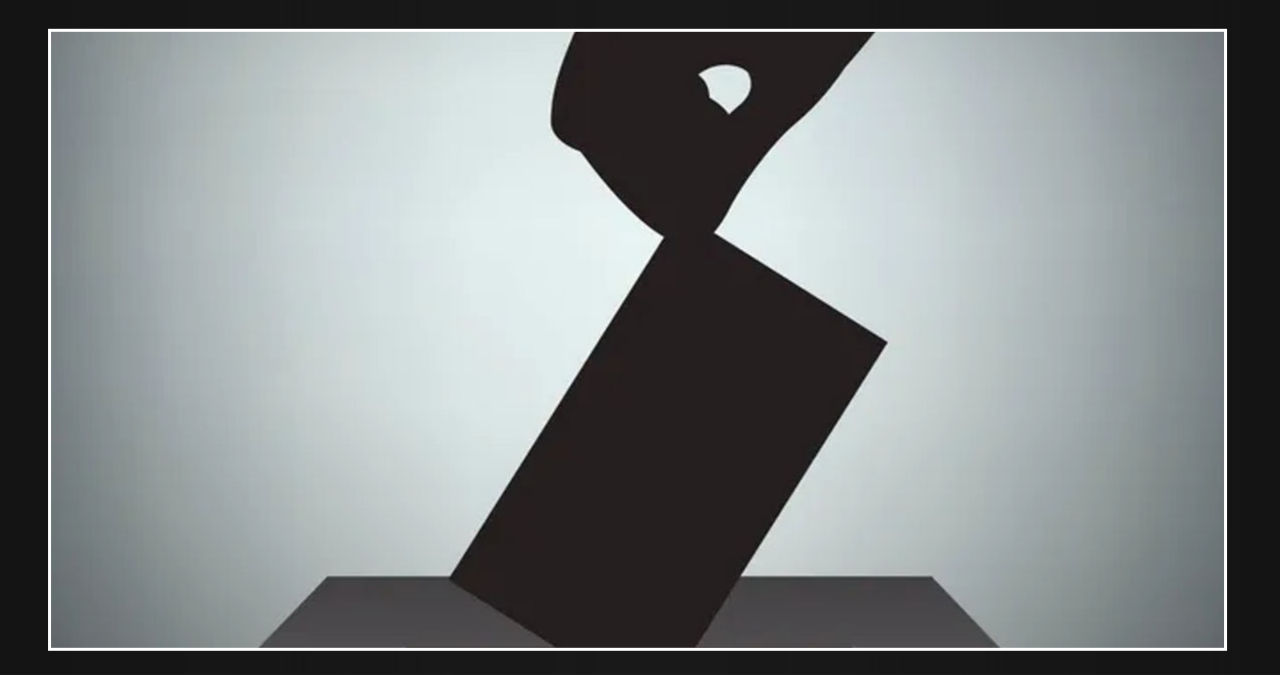The concerns and preferences of Arizona’s Latino voters have been revealed in a recently published election survey conducted by Arizona State University.
The survey, conducted by two ASU research centers specializing in Hispanics and Latinos, delved into the opinions of registered voters on various topics. These included the presidential election, national issues, state ballot propositions related to immigration and abortion, and Arizona’s U.S. Senate race.
Francisco Pedraza, an associate professor at ASU’s Center for Latino/a’s American Politics Research Center, and Stella Rouse, the director of ASU’s Hispanic Research Center, shared their research findings on Tuesday evening. The presentation took place at the Walter Cronkite School of Journalism and Mass Communication’s First Amendment Forum in downtown Phoenix.
Francisco Pedraza, an associate professor at ASU’s Center for Latino/a American Politics Research Center, and Stella Rouse, director of ASU’s Hispanic Research Center, presented their findings on October 29 at the Walter Cronkite School of Journalism and Mass Communication’s First Amendment Forum in downtown Phoenix. Daniel Gonzalez, a reporter for The Arizona Republic, led a debate after the presentation of the survey findings.
According to Rouse, the survey asked registered voters who they planned to vote for, noting that similar polls also ask participants who they would vote for on election day.
“In our mind, there’s still a lot of movement in the electorate, and certainly things that happened here in the last week could potentially make a difference in how the election falls out,” Rouse said during the presentation.
Rouse, an ASU politics professor, warned The Republic in an interview before the event that former President Donald Trump’s reelection campaign may suffer among undecided Puerto Rican voters. During Trump’s Oct. 27 rally at Madison Square Garden, a speaker referred to Puerto Rico as “a floating island of garbage” in front of thousands of people.
According to the survey, Vice President Kamala Harris has garnered significant support from registered Arizona Latino voters, with nearly 51% expressing their support for her presidential bid. This level of support is comparable to the backing she receives from Latino registered voters across the country, as well as general registered voters in Arizona, where she enjoys 52% and 51% support, respectively. On the other hand, the survey also revealed that former President Donald Trump has the support of 32% of Arizona Latino registered voters for a second term, while nationwide, 36% of voters and almost 38% of general registered voters in Arizona back the Republican nominee.
According to the survey findings, a significant percentage of Latino registered voters were still undecided, planning to vote for a candidate other than Harris or Trump, or not voting at all. In Arizona, this group accounted for 17% of Latino registered voters, while nationally it represented nearly 21%.
According to recent polls in Arizona, President Trump is maintaining a narrow lead over Senator Harris. However, the race between the two candidates remains close.
According to the survey, a majority of Latino registered voters expressed support for Proposition 314. The proposition aims to criminalize unauthorized border crossings at the local and state level, as well as grant state judges the power to order deportations. The survey found that approximately 45% of respondents were either somewhat or strongly in favor of this proposition.
“This is why they’re still out there canvassing , hitting the pavement because they know there are voters who haven’t yet cast their ballot and they’re wondering, ‘Are they persuadable?’ Our data says, to some extent, there are a few they may impact like this,” Pedraza said.
According to a survey of Arizona Latino registered voters, the most critical topics they want the next president to address are wage and income improvements, job development, and border security.
The survey also found that Proposition 314, which would penalize unlawful border crossings at the local and state levels and empower state judges to order deportations, has a majority of support among Latino registered voters. Respondents indicated that approximately 45% of them were either somewhat or extremely supportive of Proposition 314.
The border “is a real concern for Latinos living in border towns,” according to Rouse. The southern boundary is “a primary issue for Arizona voters and, particularly, Arizona Latino voters.”
Support for the ballot measure among registered Arizona Latino voters skyrocketed to approximately 54% when fentanyl was mentioned in the survey.
Pedraza clarified that the survey does not ask follow-up questions, such as whether respondents are aware that fentanyl primarily enters the country through ports of entry instead of crossing the border directly. He stated the survey questions “mimic” what voters will see on their ballots, and the “overall message is that this is bad; it’s associated with crime, and we want to stop it.”
Community advocacy groups like Arizona’s Living United for Change have regularly protested against the legislation since its drafting in the state legislature. However, Pedraza and Rousse observed that the intensity witnessed during anti-Senate Bill 1070 rallies in 2010 has waned throughout this election cycle.
Meanwhile, the study found that Latino registered voters and general registered voters were nearly identical in their support for Democratic U.S. House Rep. Ruben Gallego and Republican TV personality Kari Lake in the state’s U.S. Senate election. Registered voters expected Gallego to win by 47% to 31%.
Gallego, who, if elected, would become Arizona’s first Latino U.S. Senator, performed marginally better among general registered voters than among Latino registered voters, who preferred him over Lake by a margin of 45% to 31%.
We conducted the survey online between September 23 and October 11. It used a nationwide sample size of 3,399 with a 1.7% margin of error, an Arizona registered voter sample size of 1,213 with a 2.8% margin of error, and an Arizona Latino registered voter sample size of 440 with a 4.7% margin of error.











Leave a Reply